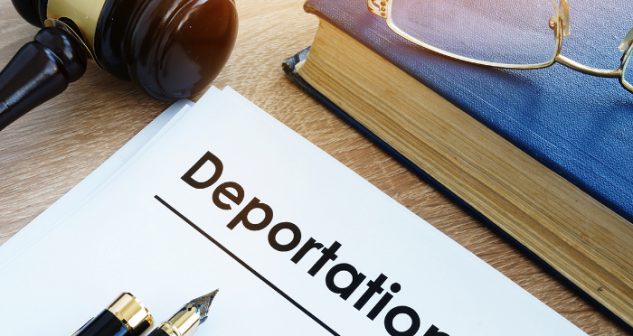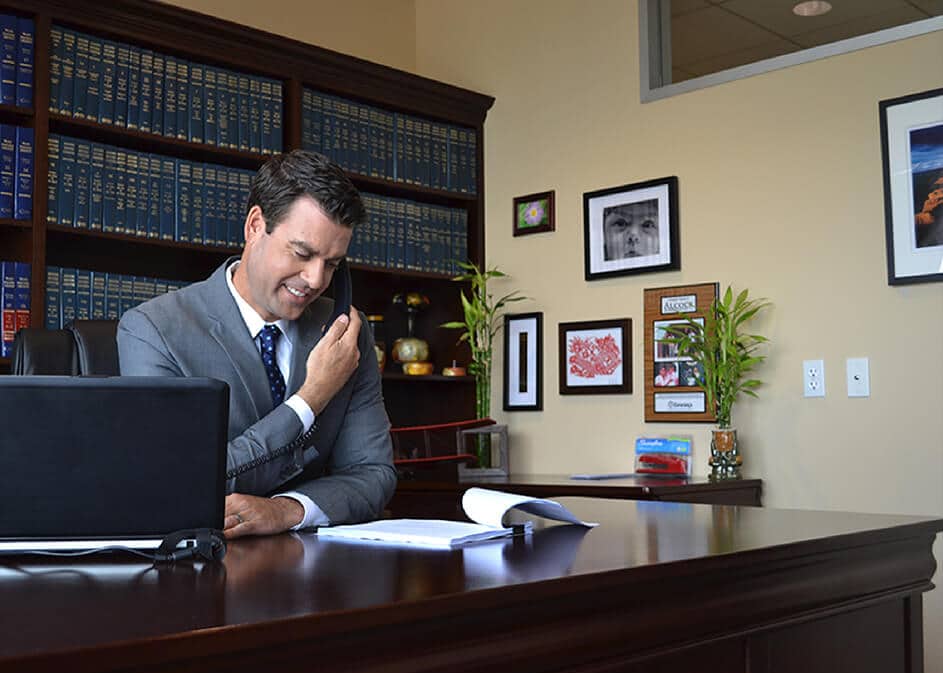Very happy for having obtained my residency and for the patience they had handling my case. I went to my interview outside of the United States and I came back well, being a resident. When I went to my interview, they gave me everything I needed. The service was the best and with a very good price for the service. I recommend this law firm a lot, especially my attorney Lisa Elkin, excellent work!

DEPORTATION DEFENSE
A large number of undocumented immigrants were placed under ICE custody and deportation proceedings because they have simply been detained by police for minor infractions or for driving without a license. Many of these people believe that because they are detained and arrested, they have no choice but to return to their home country. However, this is not true. With qualified and well-planned representation, many undocumented immigrants can successfully avoid deportation.
It is very important that undocumented immigrants and their families know what steps to take in situations like these. The articles below will cover what immigrants can do when they or their family members are arrested and placed in deportation proceedings. The first important issue is knowing that ICE only has 48 hours to pick up an immigrant once the criminal case has been completed.
This means that once one has served the sentence or stay in jail, immigration authorities have to lift it within two days of that date, otherwise the immigrant must be released by the police or the Sheriff’s office. If your family member is not picked up by ICE within 48 hours, you should ask law enforcement to release your family member. We have obtained the release of many of our clients for this reason and they have completely avoided detention and deportation proceedings because of this timely action. How to get a family member out of jail once ICE has taken them away is the next issue of relevance.
The answer depends on the situation. The government must keep non-citizens detained if they have been convicted on certain criminal charges. If there is no criminal conviction, the immigrant can usually be released on bail when the amount set by the government or court is paid. The amount of bail varies depending on the judge and the facts of the case. The best step is to get your family member out of the detention center, if you can, and then hire an attorney to defend their rights in court. Even when your family member is out on bond, he or she must appear in Immigration Court and explain to the judge why he or she should not be deported.
If you ignore the case before the court once the bond is paid, your deportation will be ordered by the court, the bail money will be forfeited, and you will likely lose any chance of legalizing your situation in the United States. It is commonly possible to proceed with a claim before the Immigration Court, whether it is cancellation of deportation, asylum, adjustment of status, or other claims. These arguments apply in several situations where the arrested undocumented person has family residing in the United States legally or has been a victim of a crime, or a victim of domestic violence, or can prove that they will suffer harm if they have to return to their home country.
How the deposit is determined. Once your family member is detained, the government will determine the amount (amount) of bail. Many times, the amount is greater than what the Immigration Judge will set. The U.S. Department of Security (DHS) sets bail rates starting at $5,000 and can go up to $15,000 even without the detainee having a criminal record. If you pay this bond set by DHS, the detained person will be immediately released.
If you cannot afford the cost of the bond, you can go to Immigration Court and request a hearing to have the bond redetermined. Usually, this process requires the assistance of an attorney. The Court will set a hearing date and consider the arguments related to the amount of your family member’s bond. To make a decision, the Judge will consider several factors. One of the most important is whether your family member is “prone to escape,” indicating that he or she is not likely to return to court once released. To evaluate this factor, the Judge will consider factors that tend to show the good moral character of the detained person.
These factors include:
• Relatives in the United States: Wife and children born in the United States or who are permanent residents.
• Job: Does this person have a regular job and an income?
• Place of residence: does the person have a place to live if released?
• Immigration history: Have you stopped appearing in court in any criminal or immigration proceedings? Can you prove to the Judge that you were a trustworthy person when you had to appear in court in the past?
• Taxes: Have you paid your taxes in the United States?
• Resources to stay in the United States: Do you qualify for any immigration status? Do any family members file a petition on behalf of the detainee?
Does your family member have credible arguments regarding your eligibility for asylum or cancellation of removal? Bail Amount. Immigration Judges are not authorized to set bonds below $1,500. Typically, when an individual has not committed crimes, San Francisco judges tend to set bail between $2,000 and $5,000, especially if the person has any recourse to apply for immigration status.
In cases where the detainee has a criminal history or has a history of not appearing in previous courts, the bail will usually be higher. If you post bail directly to the government, the money will be returned to your family only when the court case is completed and only if you have complied with the court’s order, even if that order is to leave the country. Appeal.
If you disagree with the Judge’s decision regarding bail, you may appeal the decision to the Board of Immigration Appeals (BIA). However, this process is not very practical as the cost of preparing such a motion may be higher than the cost of bail. Also, the Immigration Judge may order the deportation of the detained person before the BIA decides the bond issue.
The Government could also appeal the Judge’s decision if it considers that the bail is very low or that the detainee is not entitled to it. Next month we will discuss how to fight and win your case in the United States, before the Immigration Court.
CANCELLATION OF DEPORTATION.
If the person has already been arrested and is inside an Immigration Detention Center or is in Deportation Proceedings, you may consider this section of the law as an option to remain in the United States. The person has to go to court and apply for this cancellation procedure, ignoring it could bring more severe consequences. The requirements for cancellation of removal are:
1. The person must prove that they have remained in the United States. for more than 10 continuous years, this means that you have to prove to migration that the person was 10 years ago and has never left the country.
These proof would be documents such as: receipts, air tickets (within the United States), medical records, work documents (checks, contracts … etc.), bank accounts, documents from your child’s school, even important and private papers such as some traffic violation or certain crimes committed but you must first review them with your Attorneys (non-deportable crimes), these pieces of evidence are presented before the Immigration Judge as part of the defense and evidence of your stay in the United States for more than 10 years. Remember that the 10-year period should be uninterrupted.
2. The person must prove that he has had and has a moral conduct that does NOT violate the Immigration rules, being a good citizen.
In other words, the person must establish that he has not committed any crime or that the crime has been minor without serious considerations and consequences for the country. Submit rehabilitation documents, letters from your Parents, Priests, Pastors, Teachers, and family members who have knowledge of your behavior.
3. The third and final requirement that is one of the most difficult to prove and establish, is that the person must prove that the relative (child, father, mother who is a citizen or resident of the United States) has a severe problem and that deportation would cause “exceptional and extreme” suffering.
In your case you must prove that your child will have this extreme suffering if the father is deported to his country of origin. This is one of the most difficult elements to prove, immigration laws require proof of special circumstances in order to be approved.
The problems of daily living will not be enough to show that suffering is valid for Migration. For example, it is not enough that your child only speaks English and that when returning to his country of origin (Parents) he will have communication difficulties in Spanish, nor will it be enough that the parents of the person in deportation proceedings have financial problems and need help.
The United States Government does not consider this financial situation to be extreme, many of these cases are denied. Certainly, one of the best arguments is that your relatives have a “SPECIAL need” for example a physical problem or illnesses that will not receive adequate medical care in their home country. Other factors to take into consideration are age, knowledge of the language (English), living conditions in your country of origin (extreme poverty), may be of benefit to not be deported.







